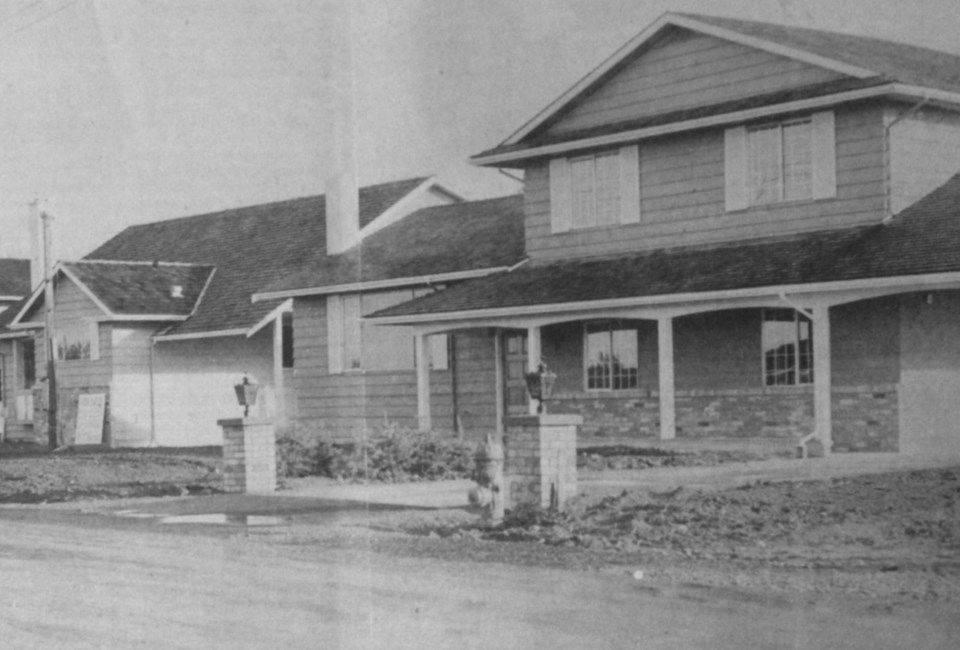Much has changed since a South Delta pensioner was evicted almost 50 years ago. Secondary suites are viewed as much needed form of housing now, but they were looked upon with contempt back in 1976 when then-mayor Tom Goode declared a crackdown on so-called "illegal suites."
Caught up in the controversy in January of that year was Eric Anderson, 71, who had been living in a "very nice" Grove Avenue basement suite, paying $120 per month for his lodging and utilities.
Saying he searched for months in vain to find affordable accommodation elsewhere, Anderson, a veteran who had no savings, made public his fears he'd be thrown out onto the streets.
His landlord, Dave Bennett, described the situation as "silly" and said he would refuse to physically oust the senior, despite Delta's eviction notice that came following a complaint by another homeowner. Bennett was summoned to appear in Delta Provincial Court, as were 25 other similar cases at the time.
Goode explained building inspectors weren't seeking out illegal suites but were acting on complaints, noting the only occasion a suite was permitted was when a direct relative asked permission from the municipality. Applications had to be accompanied by a confirmatory letter from a family doctor. "I think we have the right to dictate to the owner of a home who can be allowed to live in the unit," Goode said. "I know the municipality doesn't own the building, but the community as a whole has a say."
Delta council then approved a bylaw limiting suite occupants to family members, forcing Anderson to move, but even that didn't satisfy a group of Ladner residents that threatened legal action against Delta, saying the bylaw didn't go far enough and that the municipality wasn't doing enough to crack down on existing suites.
By the late 1990s, the courts had thrown out a Delta bylaw prohibiting suites, unless occupied by a family member, and for years after that there wasn't any attempt to either permit or ban the units. In 1999, council considered a referendum but instead opted to monitor the situation, only acting on a complaint basis. At that time, Delta staff assumed 15 to 20 per cent of single-family housing stock contained illegal suites.
Delta's policy had become one in which staff worked with suite owners to minimize the impact on surrounding neighbourhoods. Suites that posed no problems but were reported to the municipality no longer faced immediate closure, unlike previously when any complaint, regardless of reason, triggered a closure order.
By 2009, attitudes were finally changing when the municipality struck a housing task force to look at the complex issue of creating more affordable options. By then, it was acknowledged the rising cost of housing and diminishing rental stock had increased the demand for secondary suites.
"There is little rental stock being added to the housing inventory making it difficult for some people to find affordable rental housing," stated a Delta Housing Task Force report at the time.
The very first task force recommendation, approved the following year, was the legalization of secondary suites. By then, Delta was one of the last municipalities to do so.
"Secondary suites offer a much-needed affordable housing option in our community," said Mayor Lois Jackson at the time. "It has taken us a number of years to get to this point and it is important for our residents' safety that we regulate these suites to ensure they are built in a safe manner that adhere to the BC Building Codes."
At the time the bylaw was adopted, the municipality estimated there were 5,300-to-7,000 secondary suites of all types in Delta, many of which did not meet zoning or building standards.
In the fall of 2023, the province introduced new housing-focused legislation intended to remove barriers for residents and developers to provide more housing options. The new legislation will require municipalities to update bylaws including allowing all residential single-detached zoned lots to allow a minimum of one secondary suite and/or one accessory dwelling unit.
Delta over the past few years has been making several zoning and Official Community Plan (OCP) changes to facilitate more secondary units, recently approving more bylaw amendments removing barriers for owners leasing or renting a suite.




